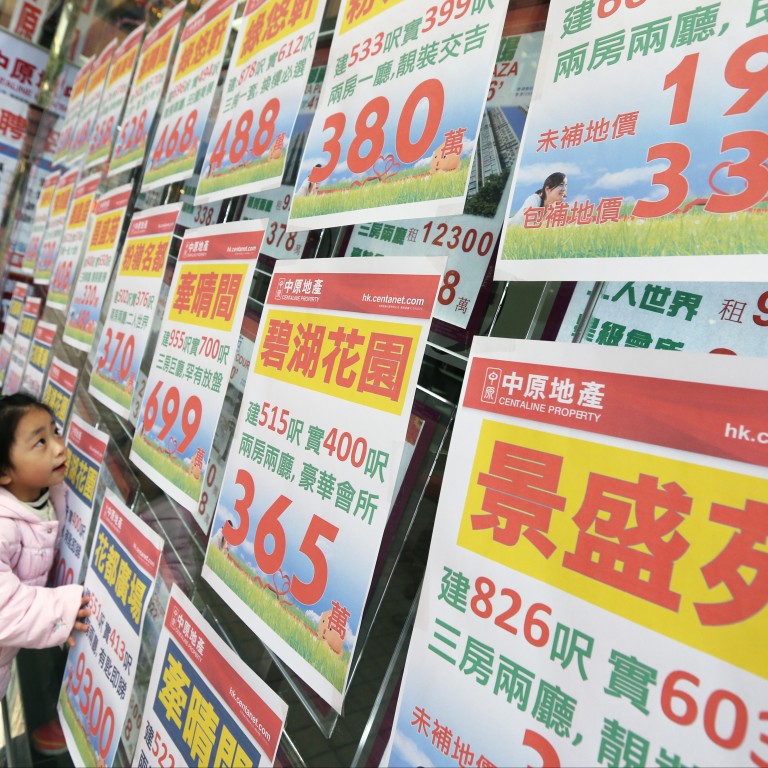
New | Sea change looms for Hong Kong brokerage industry
Leading realtors in HK feel heat as a mainland entrant targets the top three spot in one year by luring agents with attractive salary packages
The face of the real estate brokerage industry in Hong Kong will undergo a dramatic change with a mainland Chinese realtor planning to become one of the top three brands in one year by offering attractive salary packages to lure away frontline agents.
It is the first mainland Chinese operator in the past 10 years to challenge the two local operators, Midland Realty and Centaline Property Agency, after various international firms failed to enter the real estate brokerage industry in the city.
Vincent Chan Kwan-hing, the managing director heading the Hong Kong operation of the soon-to-be-launched Qfang, said agents who were only receiving as little as 10 per cent of the commission fee for every successful deal would see better returns.
"The system is unfair and fails to recognise agents' work. We will set a new benchmark in the industry by doubling the commission fee agents had received under the existing industry practice," he said.
"We want our agents to be happy to work and receive the highest return. The incentives will encourage them to work harder as well."
Qfang has committed HK$50 million after it rented 20 street-level shops on Hong Kong Island and in Kowloon and the New Territories.
"We have recruited 300 agents who are Hong Kong residents," Chan said, adding that the firm would officially launch as early as May.
Whenever there is a large project launch, the two groups will mobilise nearly 8,000 agents in total to handle the sales for developers
He shrugged off the latest round of tougher mortgage rules. "The curbs would not be in place forever. In the long term, the prospect of the Hong Kong market remains bright," he said.
The Hong Kong Monetary Authority lowered the loan-value ratio for properties worth less than HK$7 million on February 27. Home sales are expected to be dominated by the primary sector as the number of transactions in the secondary market halved.
Sammy Po Siu-ming, the chief executive of Midland's residential department, said new entrants to Hong Kong's tightly held property brokerage market faced a difficult task as nearly 90 per cent of new home sales went to the four operators owned by Midland and Centaline.
Midland has more than 3,000 agents in 220 branches, and its wholly owned Hong Kong Property Services (Agency) has a team of more than 1,000 agents across 71 branches.
Centaline operates 320 branches with 4,000 agents, and its 100 per cent-owned Ricacorp Properties has 210 branches with 2,700 agents, which it plans to increase to 3,500 this year.
"Whenever there is a large project launch, the two groups will mobilise nearly 8,000 agents in total to handle the sales for developers," Po said. "The more potential buyers we are able to line up for developers, the better chances we will sell more units to our clients and the more commissions our agents can earn."
He said its agents could generate an average 25 to 30 per cent in commission fees, pointing out the reported 10 per cent was just the starting point.
Midland recently paid more than HK$600,000 a month for a shop in Tseung Kwan O to bolster its network.
"The shop should be the most expensive branch in the industry. We think it is worth it as it will have about 10,000 new units in the sales pipeline in coming years," Po said.
Louis Chan Wing-kit, a managing director at Centaline, believes the market will be dominated by sales in the primary residential sector over the next three to five years.
"It will be a difficult market for us as the supply of new flats is still far below the peak of 26,000 units a year in 2003. But new operators are always welcome," he said.

